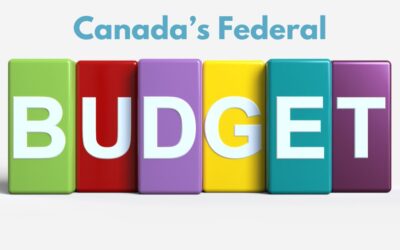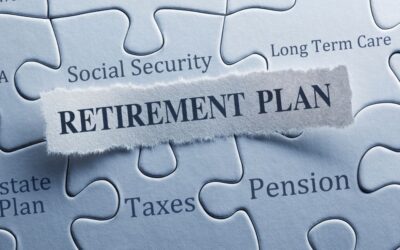No pressure here, but this article will attempt a few things:
- share some truths about long-term savings and investments
- dispel some myths around RRSP and TFSA accounts
- show you one simple strategy to get the most of both worlds, which will blow your mind
Here we go!
Some truths:
Retirement. Depending on where you are in life, you may be crystal clear on what that looks like for you. Or you may be very unclear of when, if, and how you see retirement for yourself. “They” say that the best advantage for retiring comfortably is a long investment timeline. It’s true, the longer you save the more your portfolio has time to grow. But what many DIY investors don’t always consider is the taxation of those investment assets during retirement.
This is that big picture thinking when talking about retirement investing: retirement income planning. Yep, you don’t just need to plan for savings, but also what the flip side is going to look like. It can have a great impact on whether your savings are enough to fund your retirement (and by A LOT!). Are you going to be losing 30-40% to taxes right away? Will your taxable income in retirement exceed the allowable amount to receive your entire Old Age Security entitlement? (fun fact: the government of Canada claws back your OAS benefit in retirement if you exceed their maximum taxable income)
And then there’s the flexibility of those investments. People often don’t consider the restrictive and fixed income nature that many pensions and registered retirement savings have before dumping their hard-earned dollars into them. Cashflow management becomes key for those who have a fully fixed income during retirement. I’m someone who likes some flexibility.
Why struggle if you can just plan well in advance?
Some myths:
MYTH: RRSPs are the only way to save personally for retirement.
RRSPs are Registered Retirement Savings/investment plans, which means that you receive a tax deduction and the investment grows tax-free, but you’re taxed when you take it as income in retirement. Essentially, it’s a tax deferral plan that allows for tax-sheltered growth. This tax deduction is at your combined (or marginal) tax rate the year you contribute, and you’re taxed at the marginal tax rate you hold the year you withdraw. You can invest in these any way that you’d like (within Canadian regulations). If you start contributing right out of school at your lowest earning power, you’re likely not going to be at that same tax rate when you retire, so save any RRSP contributions for when you really need a tax deduction and it’s worth your while.
Fun fact: just because RRSP stands for Registered Retirement Savings Plan, they aren’t the only retirement savings game in town. Work with an advisor to determine whether they’re the right fit for you before deciding to invest.
MYTH: TFSAs are just a savings account I can get at my bank
Tax-Free Savings Accounts are also registered savings/investment plans in that they afford you tax-sheltered growth, but you don’t get a tax deduction for contributions, and you aren’t taxed for withdrawals. And yes, a TFSA SHOULD be actively invested according to your risk profile if you’re going to take full advantage of the tax shelter. Why waste contribution room getting a tax shelter of 1% interest in your savings account when even a conservative investment portfolio can yield you a tax-sheltered 4 or 5% (or much more if you’re a more aggressive investor).
Fun Fact: you can hold as many TFSA contracts as you’d like, as long as you don’t over-contribute across all of them. This means you can designate different contracts for different goals, like one for retirement, one for the kids, one for vacation, and have investment portfolios that align with each of those goals and timelines.
Which is right for me? An RRSP or a TFSA?
Well, if you’re not requiring additional tax deductions and have available room in your TFSA, that’s a no-brainer. TFSA all the way.
If you’re employed and have a group RRSP where your employer will match a portion, then certainly take advantage of that, but if you don’t need additional tax deductions, don’t over-contribute beyond what’s being matched.
If you’re the higher income earner and do require additional tax deductions come income tax time, consider contributing to your personal or spousal RRSP. Regular contributions throughout the year can take a sting out of a lump-sum come RRSP deadline time.
Ready to have your mind blown, and get the best of both worlds?!
So let’s look at this strategy very simply, using the example of an individual who earns a salary so can be limited with respect to the available tax deductions available to them. They’ll likely benefit from an RRSP contribution but aren’t seeking a refund and don’t want to tie up some money over-contributing throughout the year. They’d like to invest monthly however so that they don’t have to cough up a bunch of money in February. They have available TFSA contribution room and a moderate investor risk profile.
Here’s what we do:
- contribute a comfortable monthly amount to a TFSA (based on your unique situation)
- come the end of December we quickly calculate the approximate tax liability for the year based on the final pay stub (or estimated annual salary) and additional deductions
- we transfer from the TFSA to the RRSP any amount that would be needed to offset the tax prior to December 31, and leave the remainder in the TFSA to continue growing
Why this makes sense:
a) we’re not just using the deposit dollars from your hard-earned paycheque, but also what investment growth has accumulated over the year to make the RRSP contribution.
b) any withdrawals from the TFSA in the year are added back to the available contribution room the following calendar year (a benefit of doing this prior to December 31st if you’re near maxing out your TFSA)
c) you’re only contributing what you need to, allowing your other dollars to remain flexible for pre- and retirement income purposes, reducing your taxable retirement income
Don’t try this at home
While any strategy is a benefit for you to understand, I recommend discussing any implementation with your advisor prior to beginning to ensure that it fits in with your overall investment and financial plan, and makes sense for your big picture.





0 Comments